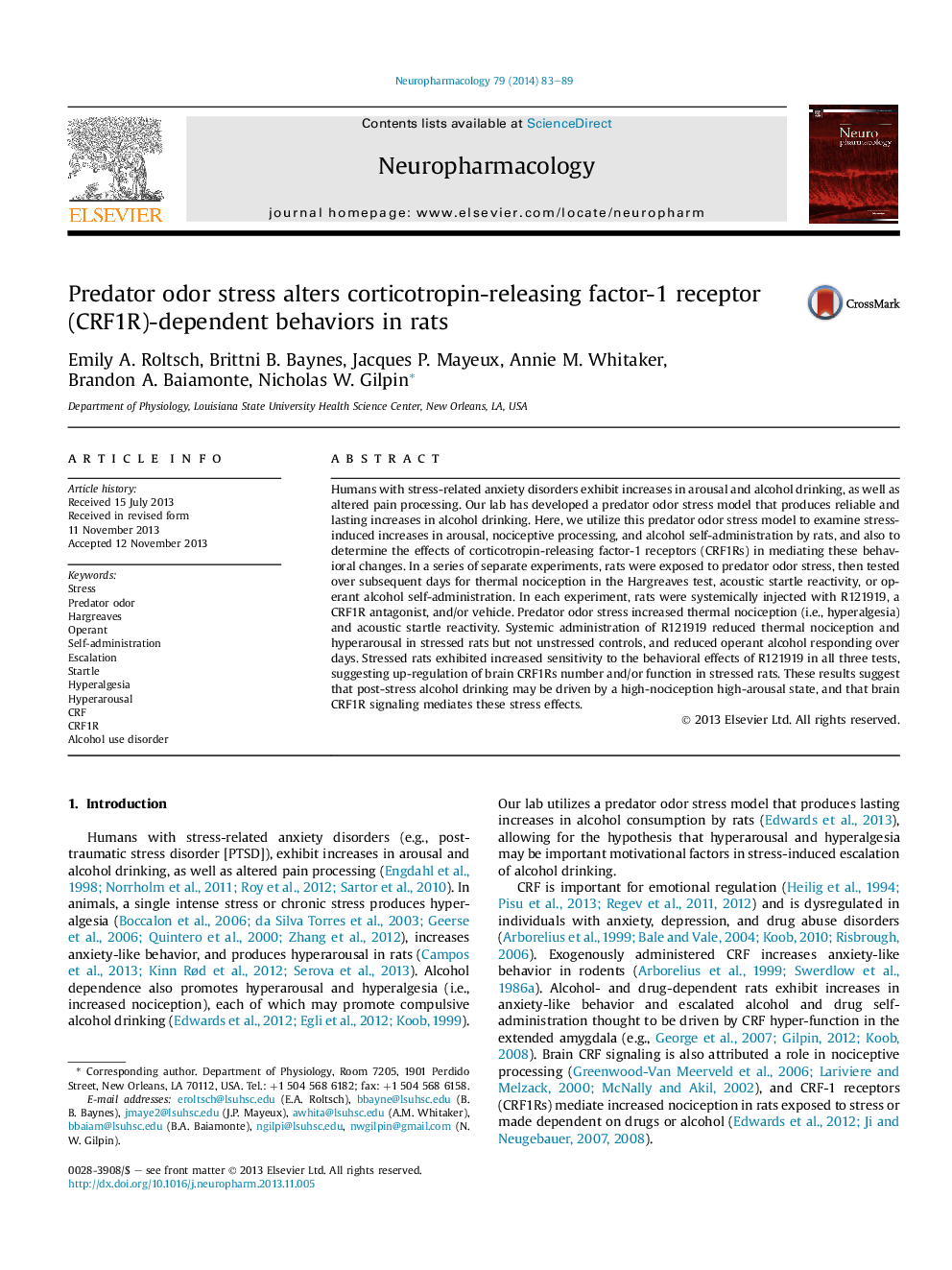| کد مقاله | کد نشریه | سال انتشار | مقاله انگلیسی | نسخه تمام متن |
|---|---|---|---|---|
| 5814561 | 1556635 | 2014 | 7 صفحه PDF | دانلود رایگان |

- Predator odor stress increases thermal nociception and startle reactivity in rats.
- CRF1 receptor antagonism reduces thermal nociception in stressed rats.
- CRF1 receptor antagonism reverses stress-induced hyperarousal.
- CRF1 receptor antagonism reduces alcohol drinking in stressed rats.
- Stressed rats are more sensitive to the behavioral effects of a CRF1R antagonist.
Humans with stress-related anxiety disorders exhibit increases in arousal and alcohol drinking, as well as altered pain processing. Our lab has developed a predator odor stress model that produces reliable and lasting increases in alcohol drinking. Here, we utilize this predator odor stress model to examine stress-induced increases in arousal, nociceptive processing, and alcohol self-administration by rats, and also to determine the effects of corticotropin-releasing factor-1 receptors (CRF1Rs) in mediating these behavioral changes. In a series of separate experiments, rats were exposed to predator odor stress, then tested over subsequent days for thermal nociception in the Hargreaves test, acoustic startle reactivity, or operant alcohol self-administration. In each experiment, rats were systemically injected with R121919, a CRF1R antagonist, and/or vehicle. Predator odor stress increased thermal nociception (i.e., hyperalgesia) and acoustic startle reactivity. Systemic administration of R121919 reduced thermal nociception and hyperarousal in stressed rats but not unstressed controls, and reduced operant alcohol responding over days. Stressed rats exhibited increased sensitivity to the behavioral effects of R121919 in all three tests, suggesting up-regulation of brain CRF1Rs number and/or function in stressed rats. These results suggest that post-stress alcohol drinking may be driven by a high-nociception high-arousal state, and that brain CRF1R signaling mediates these stress effects.
Journal: Neuropharmacology - Volume 79, April 2014, Pages 83-89